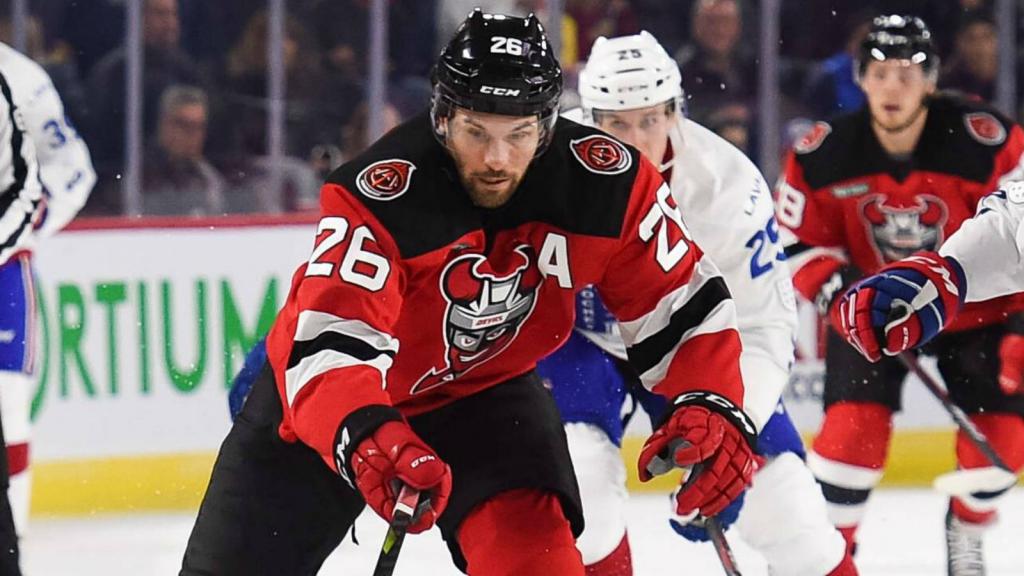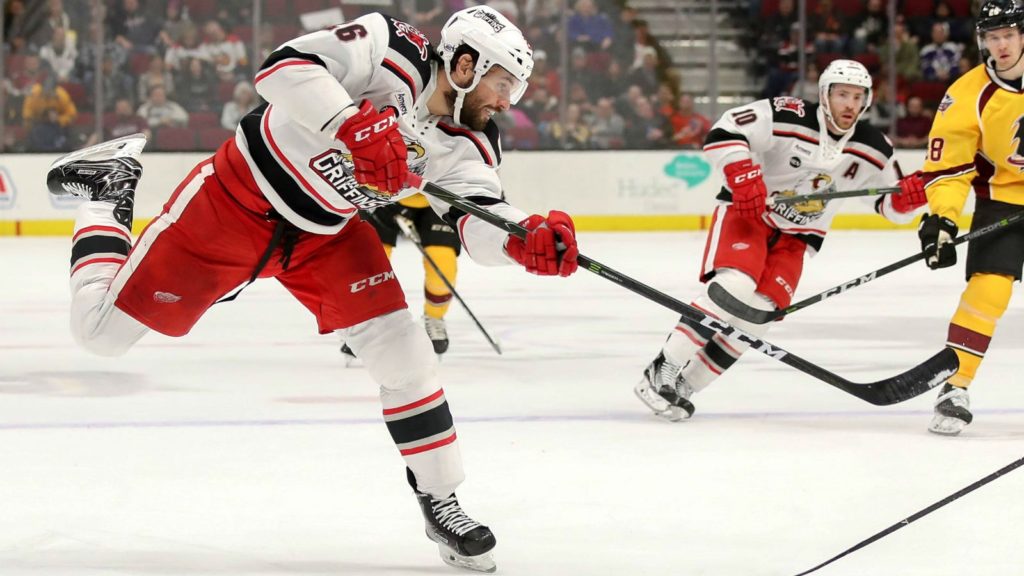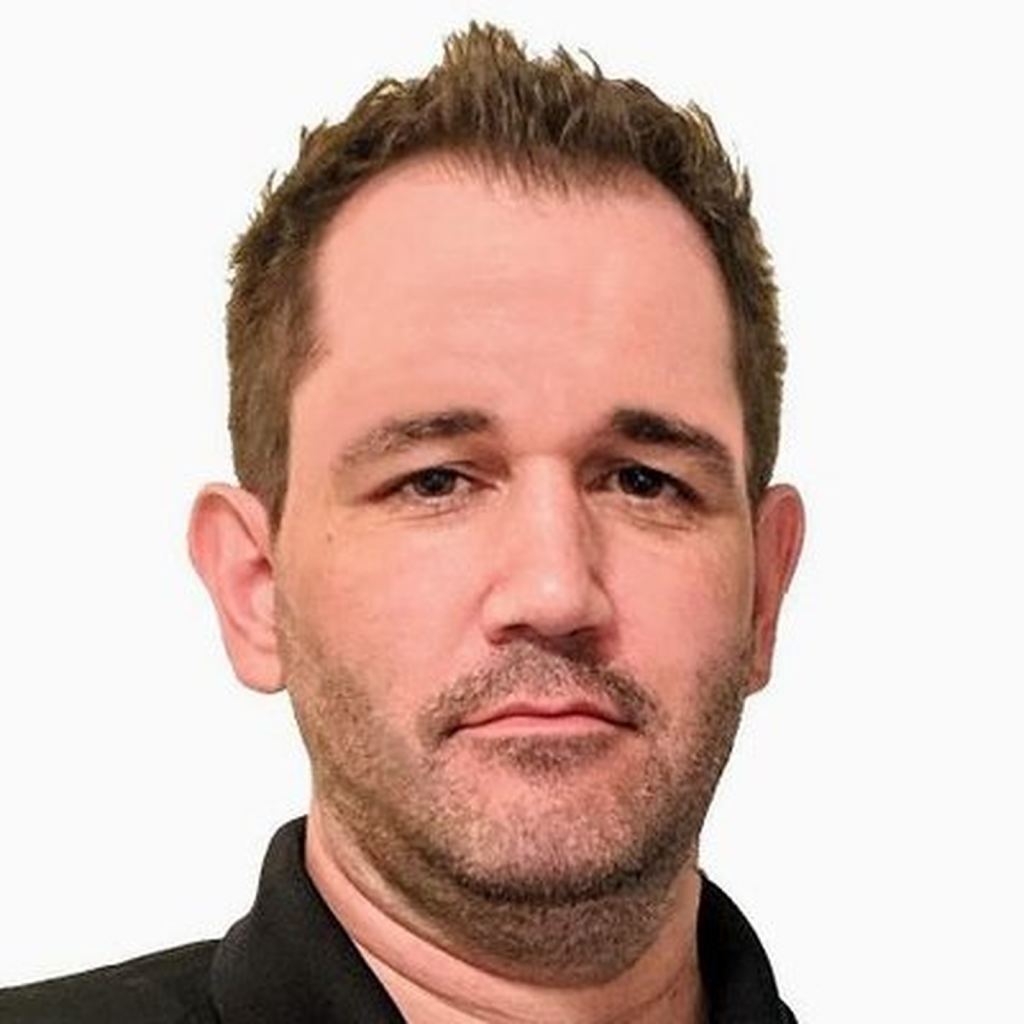“Trying to re-write a script” – still chasing the NHL dream at 29

NHL hopes are not merely for the young in the AHL.
Most veterans across the 31-team league have put at least a few NHL games on their hockey resume, but there are a few players who persisted even as the clock ticked on their careers.
Long-time AHL forward Bracken Kearns was 30 years old before he finally played his first NHL game in 2011. Goaltender Jeff Glass had put in 12 pro seasons, seven of them spread across six teams in the Kontinental Hockey League, before he played his first NHL game last season with the Chicago Blackhawks at age 32.
The potential for another NHL expansion team and the 20-plus new jobs that would accompany it will only intensify that hunger. So when players keep going in hopes of receiving another phone call to the NHL, there is reason behind those aspirations.
RE-WRITING THE SCRIPT
Binghamton Devils forward Eric Tangradi is one of those players at age 29, and he has 144 regular-season NHL games to his name to further buffet that goal.
But Tangradi’s career journey has meant that he has had to become his own biggest fan. A player’s reputation – good or bad — begins to solidify in the minds of NHL general managers, coaches, and scouts as he moves through his career. Changing that image can be a major impediment.
“I’ve been trying to re-write a script that was written years and years ago,” Tangradi admitted.
His 31 goals with the Grand Rapids Griffins last season tied him for third in the AHL. Being someone who can put the puck in the net and bring a friendly, outgoing personality to a dressing room apparently was not enough in a job market in which there is younger, cheaper talent available.
“At this level, I’m an elite goal-scorer,” Tangradi said. “But I think that I have the versatility to play a bottom-six role in the NHL and a top-six role in the American League. For me, it’s just to play fast and physical, have an identity every night.”
But he found himself in a challenging free-agent market this past summer. He lingered on the open market until July 25th until he locked down a one-year, two-way contract with the New Jersey Devils. His relationship with New Jersey general manager Ray Shero and head coach John Hynes from their time together in the Pittsburgh Penguins organization provided a level of comfort and familiarity that Tangradi sought at this point in his career.
“[The job market] was very, very tough,” Tangradi acknowledged. “The year that I had last year, I would have expected to have the phone ringing off the hook. All I was really looking for was to go to an organization that was going to give me an opportunity.”
“At the same time, to come off a good year and get kicked in the butt kind of fuels the fire again.”

Photo: Frank Jansky/Icon Sportswire
A LONG JOURNEY
The challenging summer was the latest obstacle as he started his 10th pro season.
That career had started with so much promise. The Anaheim Ducks chose him in the second round of the 2007 NHL Draft shortly after he had broken out with a strong postseason as a rookie in the Ontario Hockey League with the Belleville Bulls.
Anaheim had just won the Stanley Cup that spring with a physically imposing line-up, and a power forward with Tangradi’s size (6’4”, 227 pounds) fit the style and demands of that era. He had the hype and attention surrounding him that comes with being a high-end draft pick, making a trip to the Memorial Cup, and being an OHL captain.
But before Tangradi had even turned pro, he was already on the move. The Ducks shipped him to Pittsburgh in February 2009, starting his winding journey through hockey. He spent four years in the Pittsburgh organization and established himself as a high-end AHL scorer, but he only managed 40 regular-season NHL games in that time.
From there his career meandered to the Winnipeg Jets, where he was able to solidify something of an NHL role for himself. But the Jets’ continuing rebuild at the time eventually pushed him to the Montreal Canadiens organization for a year before he landed with the Detroit Red Wings.
Three seasons in the Detroit organization with Grand Rapids only yielded one NHL game for Tangradi, but it changed his career.
He won a Calder Cup with the Griffins in 2017. And after years of limited responsibilities at the NHL level, he was able discover his scoring touch again and expand his skill set playing for Griffins head coach Todd Nelson.
LESSONS LEARNED
“[Winning the Calder Cup is] a moment that I will cherish for the rest of my life,” Tangradi explained. “Winning a championship at any level is huge, but the American League is tough. You need a lot of things to go right.”
“What I learned is what it takes to win. Teams want winners. When you win at this level, it looks opens all kinds of doors here and overseas. Sacrifice, determination, playing through pain, those are all things that I think [helped] me to grow a lot as a person being able to persevere through an entire playoff run.”
Beyond that championship, Grand Rapids is where Tangradi feels he at long last began to reach his potential. The setbacks that had dotted his career before that time in Grand Rapids had worn down his confidence.
“I think that I’ve developed more in the last three years in the American League than I ever had in my career. I feel like I’m the best player that I can be right now. For me, [before Grand Rapids] I think it was…getting caught up in the negatives and focusing on what people were saying, what people were thinking versus just going out and playing my game and doing it well.”
If Tangradi does return to the NHL at some point, he will bring some career lessons along with him. In the meantime, along with his offensive production (he has been limited to nine games through November 13th, but went 2-5-7) will share those lessons inside the Binghamton dressing room
“I have a lot to offer for these young guys for what it takes to get to the next level,” Tangradi said. “I was a top prospect and had a lot of things going for me when I was young, and I just couldn’t put all of the pieces together.
Being 29 years old means that Tangradi went through a more old-school upbringing when turning pro but is well-versed in a new era of hockey dominated by the young. Having one foot in each of those contrasting worlds gives him a different perspective.
“To be totally honest, social media, the media age, you have more of a microscope on yourself than [ever before],” Tangradi admitted about his own evolution as a pro. “I think that everybody was talking me up to be Sidney Crosby’s next linemate at 20 years old, and I think that was a big burden for me to carry.”
“It was something that if I had just focused on developing, focused on playing, it would have set me up better for the future.”
Easier said than done, however.
“It’s all about what you want to take in and what you want to block out. When [you are] young and immature, you’re reading articles on the Internet about everything that has to do with you and what people think. You get caught up in that. Now I don’t, but I’d be lying to say that it didn’t impact me when I was young.”
“That’s what I try to pass on to these young guys. Just stay within yourself. You just have to have a day-to-day approach because the politics in this business is going to rub you the wrong way at some point.”
“If you can be your biggest fan, your biggest cheerleader, you’re going to be okay.”
